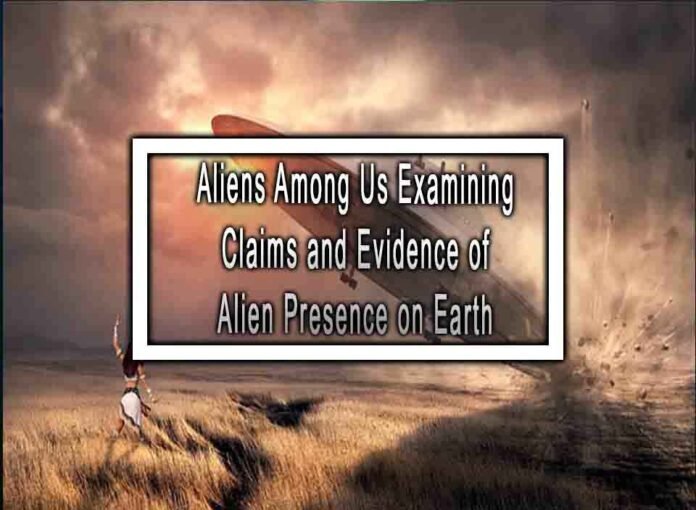Claims of alien presence on Earth are a subject of intrigue and debate, often fueled by anecdotal accounts, conspiracy theories, and purported evidence. Examining such claims requires a rigorous and skeptical approach, considering the lack of conclusive scientific evidence. Here’s how to evaluate these claims:
Eyewitness Testimonies:
- Assess eyewitness testimonies critically. While some individuals may sincerely believe they’ve had encounters with aliens, eyewitness accounts can be influenced by psychological factors, misperceptions, and cultural influences.
Photographic and Video Evidence:
- Scrutinize any available photographic or video evidence of alleged alien encounters. Digital manipulation, hoaxes, and optical illusions are common in UFO and alien-related media. Analyze the quality and authenticity of the visual material.
Physical Evidence:
- Claims of physical evidence, such as implants or mysterious substances, should be examined scientifically. Independent experts should analyze any alleged physical artifacts to determine their origin and authenticity.
Psychological and Sociological Factors:
- Consider the psychological and sociological factors that can contribute to claims of alien encounters. These may include sleep disorders (e.g., sleep paralysis), suggestibility, mass hysteria, and cultural beliefs.

- Consider the psychological and sociological factors that can contribute to claims of alien encounters. These may include sleep disorders (e.g., sleep paralysis), suggestibility, mass hysteria, and cultural beliefs.
Abduction Stories:
- Claims of alien abductions often involve detailed narratives of medical procedures and experiments conducted by extraterrestrial beings. Psychological evaluation and expert analysis can help differentiate between genuine experiences and false memories.
Government and Military Involvement:
- Investigate claims of government or military involvement in hiding evidence of alien presence. While conspiracy theories are common, extraordinary claims require extraordinary evidence. Declassified documents and official statements may shed light on certain events.
Natural and Man-Made Explanations:
- Consider natural and man-made explanations for unusual phenomena. Many claims of alien encounters can be attributed to astronomical events, atmospheric phenomena, military experiments, or other mundane sources.
Historical and Cultural Context:
- Examine the historical and cultural context of alien claims. Cultural beliefs and media portrayals of aliens can influence the way people interpret their experiences.
Scientific Research:
- Acknowledge that scientific research on the topic of alien encounters is limited due to the lack of empirical evidence. The scientific community generally approaches such claims with skepticism.
Extraterrestrial Hypothesis:
- While the extraterrestrial hypothesis is one possible explanation, it remains speculative without concrete evidence. Scientists continue to search for signs of extraterrestrial life but have not confirmed its existence on Earth.
In summary, examining claims and evidence of alien presence on Earth requires a balanced and critical approach. While many claims remain unverified and fall into the realm of speculation, it is essential to maintain an open-minded but skeptical perspective and rely on rigorous scientific inquiry when evaluating extraordinary claims.











